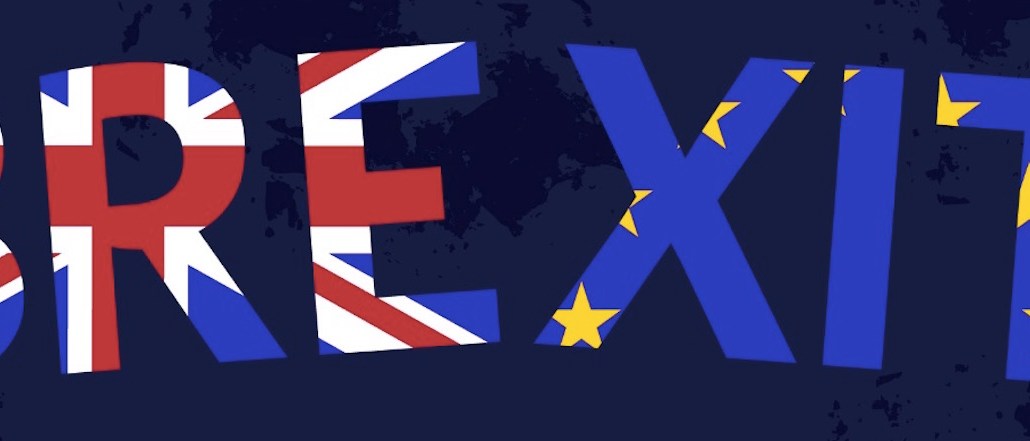Secure your place at the Digiday Media Buying Summit in Nashville, March 2-4

In the afrermath of Brexit, publishers are capitalizing on the heightened public interest and a desire for trusted journalism, by testing the appetite for new products.
The Financial Times was quick off the mark with a free Brexit print tabloid, which it released in London on the weekend immediately after the vote. The publisher has credited a 48 percent spike in that weekend’s main newspaper sales to the tabloid.
Buoyed by its success (it released 20,000 copies), the publisher has since launched three more Brexit-specific tabloids in London, Chicago and New York. These include that week’s most popular online Brexit news and analysis. All four of the FT’s Brexit tabloids attracted big advertisers: SAP, CMC, Blackrock and Pimco, all finance and tech brands suited to providing perspectives around the market uncertainty.
“Clearly there’s appetite from some brands to be in-market with both straight visibility and also with perspectives and insights. There’s a great opportunity for brands to do that while so much is uncertain,” The FT’s chief commercial officer Jon Slade told Digiday.
Douglas McCabe, CEO of media analyst Enders, said launching additional print products can be an effective use of print presses, which are more idle currently than the days when print flourished. “There are a lot more publishers looking at sending out additional publications, due to simple economics like that,” he added.
Now regional newspaper publisher Archant is trying its hand at a “pop-up” Brexit paper. On Friday July 8, the publisher will launch The New European, targeted solely at the 16 million Remain voters, many of whom have been protesting the results.
Conceived and executed within nine days, the publisher has assigned 10 of its editorial staff to focus on the product (mainly designers and sub editors), which has a cover price of £2 ($2.65). For now it has committed to four issues.
It’s also called on some high-profile third parties, including Tanit Koch, editor of German tabloid Bild, and Wolfgang Blau, former digital director at the Guardian, to pen articles. The paper can be pre-ordered online via a specific landing page, and will soon be available as a paid-for digital download. A paid-for mobile app will follow. The content will include features related to Brexit and ones that celebrate Europe.
“It’s to reflect why people, who consider themselves European, care so much about remaining in Europe in the first place,” according to Archant’s chief content officer Matt Kelly.
When 52 percent of the U.K. population voted to leave the European Union on June 23, information was released by media outlets showing the breakdown of Leave and Remain-dominant areas. That’s pretty much Archant’s market research, according Kelly.
“If there was ever an opportunity to address a new audience it’s now, because out of the blue there’s a very clear, identifiable audience of significant scale, and the vast majority of them are aligned with the same values, sensibilities and fears,” he said.
Kelly stressed that the costs of creating the new paper have been minimal. It’s gone for a lean Twitter ad campaign, which will be targeted based on relevant hashtags Remain voters have been using, gleaned from Brandwatch. It will also run programmatic display and paid search campaigns, and once the first paper has launched will ramp up Facebook seeding and marketing.
“If we crash and burn at least it will be at minimal cost and exposure. It’s the kind of test that’s much more in line with digital innovation: fail fast, but cheap,” added Kelly.
Lars Glenne, head of digital media strategy at DigitasLBi, said the lean digital marketing strategy is “smart.” But he added that the fact agencies buy audiences, not specific publications anymore, and are shifting more ad spend to programmatic, will make this a difficult sell.
Other agencies will also take some convincing. Stephen Noble, head of press trading at Mindshare, doesn’t believe advertisers will redirect spend into Brexit spin-offs, unless they’ve their own political axe to grind. “Archant is a quality publisher, and the team a savvy bunch, but I can’t see the case for this,” he said.
He suggested that the £2 price tag will be prohibitive, and that there are other papers that already provide a European flavor that will keep agencies satisfied. “How on earth can we quantify the distribution of this? Although our clients will have contingency budgets, they’ve planned for the course, and this isn’t enough to change the plans.”
However, McCabe added that it’s unlikely publishers launching “pop-up” print products are banking on big print ad revenues. “Print advertising is under a lot of pressure. No one seriously believes these kinds of products will generate lots of good print ads,” he added.
More in Media

Media Briefing: Turning scraped content into paid assets — Amazon and Microsoft build AI marketplaces
Amazon plans an AI content marketplace to join Microsoft’s efforts and pay publishers — but it relies on AI com stop scraping for free.

Overheard at the Digiday AI Marketing Strategies event
Marketers, brands, and tech companies chat in-person at Digiday’s AI Marketing Strategies event about internal friction, how best to use AI tools, and more.

Digiday+ Research: Dow Jones, Business Insider and other publishers on AI-driven search
This report explores how publishers are navigating search as AI reshapes how people access information and how publishers monetize content.





